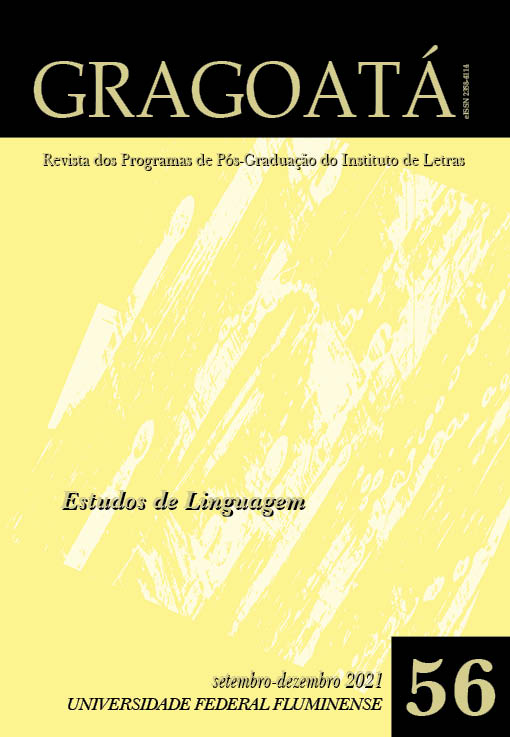Analysys of loving discourse in illustrated tales: a contribution to the sociology of emergencies
DOI:
https://doi.org/10.22409/gragoata.v26i56.48923Keywords:
Sociologia das emergências. Corazonar. Semiolinguística. Discurso amoroso. Contos ilustrados.Abstract
According to Boaventura de Sousa Santos (2020), the sociologies of absences and emergencies are at the heart of resistance against western-centered hegemonic thinking in order not only to identify the ways in which non-existance, radical invisibility and irrelevance of opressed social groups are produced, but also to value symbolically and politically the minority knowledge arising from struggle, experience, injust suffering, corporeality and from “corazonar”, that is, from “hot” affective rationalization. This article is directed, in particular, to the sociologies of emergencies, with the intention of contributing to the instrumentalization of critical reading mediators, concerned with resistance to a prejudiced collective imaginary in relation to social minorities. Thus the purpose of this reflection is to problematize the illustrated tale - cultural asset aimed primarily at children in the early stage of socialization and, therefore, more susceptible to the inculcation of values – analysing its singular verb-visual constitution in relation to the communication contract to which is linked in order to evaluate its potentiality as a resource for a liberating pedagogy. It is based on the assumption that the hybrid configuration of the illustraded tale allows a complex implication of senses and feelings that is quite conducive to the aesthetic treatment of themes related to sociability, without losing poeticiy, in a movement apparently in tune with the “coronazar” defended by the epistemologies of the South. For this, the analysis of the selected illustraded stories will be supported, primarily, by the Semiolinguistic Theory of Discourse Analysis, especially in what concerns the construction of sociodiscursive imaginary.
Downloads
Downloads
Published
How to Cite
Issue
Section
License
Authors who publish in Gragoatá agree to the following terms:
The authors retain the rights and give the journal the right to the first publication, simultaneously subject to a Creative Commons license CC-BY-NC 4.0, which allows sharing by third parties with due mention to the author and the first publication by Gragoatá.
Authors may enter into additional and separate contractual arrangements for the non-exclusive distribution of the published version of the work (for example, posting it in an institutional repository or publishing it in a book), with recognition of its initial publication in Gragoatá.

Gragoatá is licensed under a Creative Commons - Attribution-NonCommercial 4.0 International.











